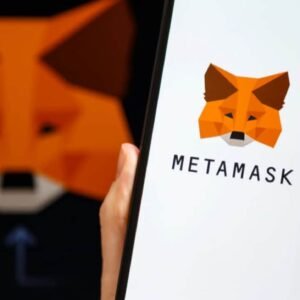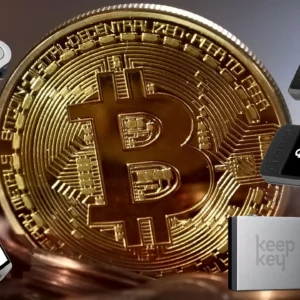The Indian Railways, known as the lifeline of the nation, is embarking on a digital transformation journey by adopting blockchain technology to revolutionize the travel experience.
This groundbreaking move involves the introduction of NFT (Non-Fungible Token) tickets on the Polygon blockchain network, allowing travelers to experience seamless ticketing while also tapping into a world of unique cultural celebrations. As India’s festivals bring millions of people together, Indian Railways’ innovation aims to simplify and enrich travel while offering an unparalleled blend of tradition and technology.
In this blog post, we’ll explore how Indian Railways is leading the charge by introducing NFT tickets on Polygon, the benefits of this futuristic approach, and how it enhances unique festival experiences for millions of passengers. Read on to learn how this transformative innovation is reshaping travel in India.

The Fusion of Tradition and Technology: Indian Railways’ Bold Move
For decades, Indian Railways has served as the backbone of connectivity in India, transporting millions of passengers daily. The system, which operates one of the largest railway networks in the world, has continually embraced innovation to meet the ever-growing demands of its diverse population. From adopting digital payments to offering online ticket booking, the railways have consistently evolved to make travel more efficient.
Now, Indian Railways is taking innovation to the next level by adopting NFT technology. NFTs, or Non-Fungible Tokens, are unique digital assets that exist on blockchain networks. By partnering with Polygon, a blockchain platform known for its scalability and affordability, Indian Railways is poised to bring revolutionary changes to ticketing. NFT tickets not only offer a secure and tamper-proof alternative to traditional paper or digital tickets but also serve as collectibles, enabling travelers to commemorate their journeys, particularly during festivals.
This innovation couldn’t come at a better time. India’s festival season witnesses a surge in train travel as people flock to celebrate events like Diwali, Holi, Durga Puja, and Ganesh Chaturthi. The introduction of NFT tickets on Polygon ensures a seamless and unique travel experience, blending tradition with cutting-edge technology.
Why Polygon is the Perfect Fit for Indian Railways
Indian Railways’ decision to collaborate with Polygon is strategic. As one of the most robust blockchain platforms, Polygon offers high-speed transactions, low fees, and environmental sustainability, making it an ideal choice for a project of this scale. Let’s dive into why Polygon is the perfect fit for this groundbreaking initiative.
1. Scalability for Massive User Base
Indian Railways handles approximately 8 billion passengers annually. Managing ticketing for such a massive user base requires a blockchain network that can handle high transaction volumes without compromising speed or efficiency. Polygon, with its Layer-2 scaling solution, ensures that NFT ticket transactions are processed quickly and at a fraction of the cost compared to other blockchains like Ethereum.
2. Low Transaction Fees
One of the biggest concerns for Indian Railways was the affordability of implementing blockchain-based ticketing. Polygon’s low gas fees address this challenge, making it possible to issue NFT tickets to millions of passengers without adding financial strain. For budget-conscious travelers, this ensures that the cost of innovation doesn’t translate into expensive tickets.
3. Eco-Friendly Blockchain
Sustainability is a growing priority, and Indian Railways is no stranger to adopting eco-friendly practices. Polygon’s energy-efficient blockchain aligns perfectly with this goal, ensuring that the NFT ticketing system supports green initiatives. By embracing an environmentally responsible blockchain, Indian Railways not only innovates but also sets an example for the global travel industry.
Through its partnership with Polygon, Indian Railways is creating a system that’s fast, cost-effective, and sustainable. The move enhances not only the ticketing process but also positions Indian Railways as a trailblazer in adopting blockchain technology for public services.
Redefining Travel with NFT Tickets
The introduction of NFT tickets by Indian Railways is more than just a technological upgrade—it’s a reimagination of the travel experience. NFT tickets on Polygon are poised to redefine how passengers perceive train journeys, offering convenience, security, and a touch of uniqueness.
1. Seamless Ticketing Experience
With NFT tickets, passengers can bid goodbye to long queues and the stress of losing physical tickets. These blockchain-based tickets are securely stored in digital wallets, accessible anytime, anywhere. The integration of NFT technology ensures that each ticket is tamper-proof and cannot be duplicated, providing peace of mind to both travelers and railway officials.
2. Collectible Souvenirs for Festival Travel
One of the standout features of NFT tickets is their ability to double as collectibles. Imagine traveling to Varanasi during Diwali or Kolkata during Durga Puja and owning a one-of-a-kind NFT ticket commemorating that specific journey. These digital collectibles allow passengers to celebrate India’s rich cultural diversity in a completely new way. Over time, these NFTs may even hold sentimental or monetary value, as they capture memories of unique festival experiences.
3. Enhanced Customer Engagement
NFT tickets open up opportunities for Indian Railways to engage with customers in innovative ways. For instance, passengers could unlock exclusive perks such as discounts, priority boarding, or access to premium lounges by holding certain NFT tickets. During festivals, Indian Railways could also issue limited-edition NFT tickets featuring artwork or themes related to the event, creating an additional layer of excitement for travelers.
By embracing NFT ticketing, Indian Railways is offering more than just a mode of transportation—it’s creating an immersive, memorable journey for its passengers.
Enhancing Festival Travel with NFTs
India’s festivals are globally renowned for their grandeur, diversity, and cultural significance. However, the challenges of traveling during these festivals, such as overcrowding and ticketing chaos, often overshadow the joy of celebration. Indian Railways’ NFT tickets aim to solve these issues and make festival travel more enjoyable than ever before.
1. Ease of Booking During Peak Seasons
Festival seasons often witness a surge in demand for train tickets, leading to long waiting lists and last-minute cancellations. With NFT tickets on Polygon, the booking process becomes faster and more efficient, reducing the stress associated with festival travel. Blockchain’s transparency ensures that tickets are allocated fairly, eliminating the risk of scalping or fraud.
2. Special Festival-Themed NFTs
To celebrate the uniqueness of Indian festivals, Indian Railways could introduce limited-edition NFT tickets themed around specific events. For example, a Ganesh Chaturthi NFT ticket could feature vibrant artwork inspired by the deity, while a Holi-themed NFT ticket might showcase colorful designs. These themed NFTs would not only enhance the travel experience but also serve as treasured keepsakes for passengers.
3. Streamlined Festival Logistics
Festival travel often involves complex logistics, from managing luggage to navigating crowded train stations. NFT tickets could integrate with smart travel solutions, such as pre-ordered meals, personalized itineraries, and luggage tracking services. By simplifying these aspects, Indian Railways ensures that travelers can focus on enjoying their festival experiences instead of worrying about the journey.
Through these features, Indian Railways is transforming how people travel during festivals, making the journey as memorable as the destination itself.
Challenges and the Road Ahead
While the introduction of NFT tickets is a promising step, it comes with its own set of challenges. Indian Railways must address these hurdles to ensure the successful implementation of this innovative system.
1. Digital Literacy
A significant portion of Indian Railways’ passengers comes from rural areas where digital literacy levels may be low. Educating passengers about the benefits of NFT tickets and how to use them will be crucial for widespread adoption.
2. Infrastructure Upgrades
To support blockchain-based ticketing, Indian Railways will need to invest in robust digital infrastructure, including mobile apps, digital wallets, and backend systems. Ensuring that these platforms are user-friendly and accessible will be key to the project’s success.
3. Regulatory Compliance
As blockchain technology evolves, regulatory frameworks around NFTs and cryptocurrencies remain in flux. Indian Railways will need to navigate these challenges carefully to ensure compliance with government regulations while maximizing the potential of NFT technology.
Despite these challenges, the future looks bright. By addressing these issues, Indian Railways can establish itself as a global leader in leveraging blockchain for public transportation.
Conclusion
The introduction of NFT tickets on Polygon by Indian Railways marks a significant milestone in the evolution of travel. By combining cutting-edge blockchain technology with the timeless tradition of Indian festivals, this initiative offers a seamless, secure, and unique travel experience. From reducing ticketing hassles to creating collectible souvenirs for festival journeys, Indian Railways is setting new benchmarks for innovation and customer engagement.
As the system rolls out, it promises to redefine how millions of passengers travel during India’s vibrant festival seasons, making every journey more meaningful and memorable. The integration of NFT tickets on Polygon not only reflects Indian Railways’ commitment to innovation but also its dedication to celebrating the rich cultural heritage of the nation.
What do you think about this bold move by Indian Railways? Could NFT tickets truly transform the way we travel? Share your thoughts in the comments below and join the conversation!






